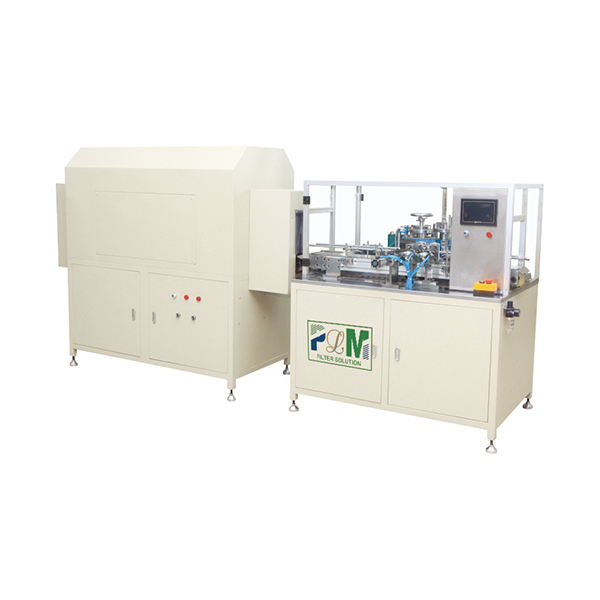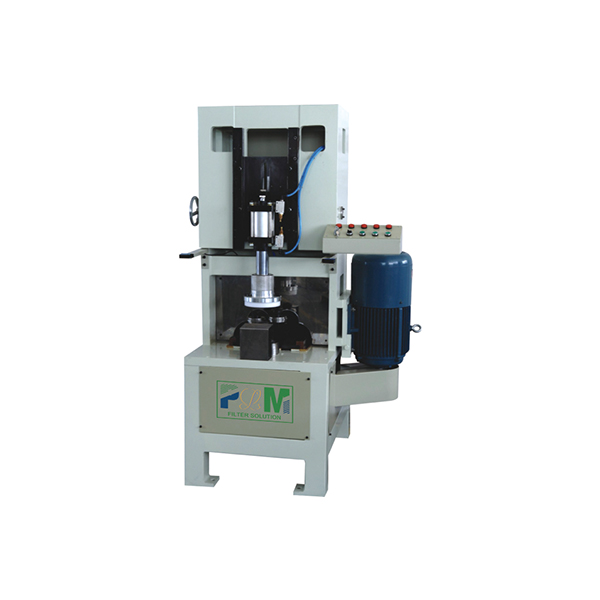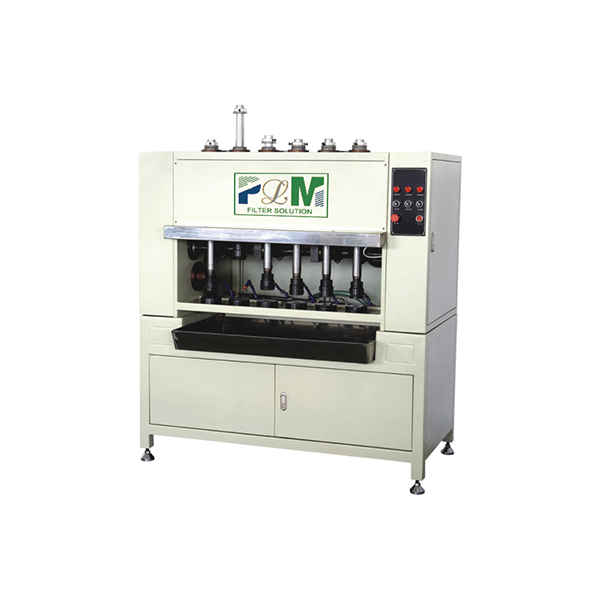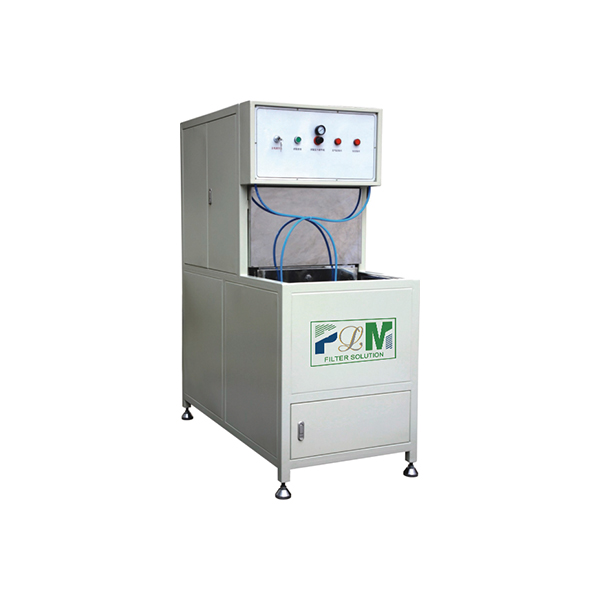Nov . 21, 2025 14:30 Back to list
Professional Air Filter Making Machine – Efficient Air Filtration Production Solutions
Why the Professional Air Filter Making Machine Is More Relevant Than Ever
Air quality isn’t exactly a new concern, but as you probably know, it’s been climbing the global priority list steadily for years now. We live in a world where industrial emissions, urban pollution, and even indoor allergens seriously affect health and productivity. Here’s where the professional air filter making machine steps in. These sophisticated machines don’t just pump out air filters—they help make life breathable on a large scale.
Understanding how these machines work and why they matter touches everything from environmental sustainability to industrial safety and even humanitarian aid. It’s kind of fascinating, really, when you think about the ripple effects of clean air technology.
The Global Outlook: Why Air Filter Manufacturing Matters Now
Recent studies from the World Health Organization show that poor air quality causes an estimated 7 million premature deaths annually worldwide. That’s staggering. Further, the Global Air Filter market is expected to expand at a healthy CAGR over the next decade, according to industry analysts, largely because municipalities and private companies alike need efficient filtration solutions.
Yet the problem isn’t just about needing filters; it’s about having the capability to produce large volumes of high-quality filters efficiently — which is where these machines shine. They tackle challenges like rising demand, quality consistency, and cost pressures all at once. Without the right manufacturing technology, we’d be stuck with fragile, unreliable, or prohibitively expensive filters. That’s no small matter when industrial air pollution is linked to health costs and lost productivity running into the billions globally.
Mini Takeaway:
- Demand for air filtration is soaring worldwide due to health & environmental concerns.
- Efficient production technology underpins the entire filtration supply chain.
What Exactly Is a Professional Air Filter Making Machine?
Put simply, this is specialized industrial equipment designed to produce air filters at scale, combining raw material handling, pleating, cutting, bonding, and sometimes packaging in one streamlined process. Instead of manually assembling filter media and frames, these machines automate the process with precision, speed, and consistency.
They range from semi-automatic systems suitable for small businesses to fully automated lines capable of pumping out thousands of filters per day for big manufacturers. Think of it as the backbone behind everything from HVAC filters in skyscrapers to medical-grade respirators and cleanroom air solutions.
In humanitarian contexts, like disaster relief or disease outbreak control, these machines can literally help manufacture clean air solutions quickly where they’re desperately needed.
Mini Takeaway:
- Professional air filter making machines are complex, integrated equipment.
- They automate filter assembly, boosting efficiency and quality.
- They serve diverse sectors, from industry to health and disaster response.
Core Components & Key Factors in Professional Air Filter Making Machines
1. Durability and Build Quality
Many engineers I talked to stress that a machine’s frame and mechanism integrity directly influence its uptime. Durable machines resist corrosion and mechanical wear from dust and moisture — conditions common in filter production environments. Stainless steel or aluminum alloys often top the bill here.
2. Scalability of Production
Whether you’re a startup or a global filter manufacturer, the ability to scale output quickly can’t be overstated. Some machines allow easy line extension or multi-lane operations—turning a single input feed into double or triple the output without much hassle.
3. Precision and Customization
It’s not just about quantity; filters come in various grades, pleat depths, and sizes. The best machines offer tight process controls and flexibility to customize pleat spacing, bonding types, and frame dimensions on the fly.
4. Cost Efficiency & Energy Use
Energy consumption is definitely a factor, especially if you’re producing filters nonstop. Many newer machines emphasize lower power motors or smarter automation to reduce waste. This ties closely with raw material usage optimization too.
5. Ease of Operation & Maintenance
Having an intuitive interface, quick-change parts, and straightforward diagnostics means less downtime. Many manufacturers offer remote support or IoT monitoring these days, which is quite a leap from older manual setups.
| Parameter | Details |
|---|---|
| Max Production Speed | Up to 120 pcs/min |
| Pleat Depth Range | 15 - 50 mm adjustable |
| Frame Types Supported | Plastic, cardboard, aluminum |
| Power Consumption | 5 kW (average) |
| Automation Level | Semi to fully automatic |
Mini Takeaway:
- Look for durability, scalability, precision, cost-efficiency, and user-friendliness.
- Specifications vary widely to match industry needs.
Real-World Applications Across the Globe
Industrial giants in Asia, Europe, and North America rely heavily on professional air filter making machines for cleanroom manufacturing, power plants, and office HVAC systems. In China’s booming urban centers, these machines feed the enormous domestic demand for air purifiers, especially where smog is a constant threat.
Meanwhile, NGOs in Africa and South America sometimes utilize mobile or smaller-scale machines to produce filters for clinics and quarantine zones swiftly—particularly relevant in infectious disease hotspots. Oddly enough, in remote industrial hubs like Northern Canada or Siberia, heaters and ventilation systems outfitted with locally produced filters from these systems drastically improve worker health and safety.
Mini Takeaway:
- They support both mass-market and specialized applications worldwide.
- Used from high-tech factories to emergency relief operations.
The Lasting Advantages and Value Propositions
At the end of the day, investing in a professional air filter making machine isn’t just about production volume and speed. It’s about reliability—knowing every filter meets strict quality standards. This directly supports social trust in air filtration products, whether in hospitals or homes.
Secondly, sustainability. Many machines now support recyclable frames and use less raw material waste because of precise cutting and pleating. This reduces environmental impact and lowers long-term costs for manufacturers.
Finally, there is an emotional peace of mind angle, which is subtle but powerful. Knowing that the air your family or coworkers breathe comes through filters created with cutting-edge technology feels reassuring in a world full of uncontrollable hazards.
What’s Next? Emerging Trends and Innovations
The march of technology shows no mercy. IoT integration is making waves, with machines now offering real-time analytics on production efficiency and predictive maintenance. 3D printing is even being explored for producing filter frames on demand, potentially slashing lead times.
Materials are also advancing — nanofiber membranes, bio-based filter media, and smart filters that adapt to particle load dynamically. Quite exciting.
Energy-wise, manufacturers are chasing greener motors and regenerative braking systems to lower carbon footprints. Sustainability certifications like ISO 14001 are becoming prerequisites rather than bonuses.
Hurdles & Smart Solutions Along the Way
Of course, these machines aren’t without challenges. Initial capital costs can be steep for high-end systems, and operator training is critical. Sometimes, inconsistent raw material quality throws a wrench in the works—causing jams or defects.
Experts recommend modular designs to ease upgrades and rapid component swaps. Plus, many vendors now offer customizable service contracts and training programs, which makes a big difference.
| Vendor | Production Speed (pcs/min) | Automation Level | Customization Options | Price Range (USD) |
|---|---|---|---|---|
| AirTech Solutions | 100 | Full | High | 85,000 - 120,000 |
| MFilter Systems | 80 | Semi-Auto | Medium | 50,000 - 75,000 |
| CleanFlow Tech | 120 | Full | High | 90,000 - 130,000 |
Frequently Asked Questions About Professional Air Filter Making Machines
Q: How quickly can a professional air filter making machine be set up and operational?
A: Most semi-automatic machines can be installed and running within a few days, with proper training. Fully automated lines might take a week or two due to their complexity and integration testing. It really depends on site conditions and operator experience.
Q: Can these machines handle different frame materials?
A: Absolutely. Many modern machines are designed to support plastic, cardboard, aluminum, and even hybrid frames. The flexibility stems from adjustable feeding systems and pleating modules.
Q: What’s the average lifetime maintenance cost for these machines?
A: Maintenance varies but generally runs about 5-10% of the initial purchase price annually. This includes parts replacement, lubricants, and regular inspections. Advanced IoT-enabled machines can lower this cost by catching wear early.
Q: How do these machines contribute to environmental sustainability?
A: They optimize raw material usage by precise cutting and pleating, reduce waste, and support recyclable or biodegradable filter components. Plus, efficient energy use minimizes environmental footprints.
Wrapping It Up: Why Investing in a Professional Air Filter Making Machine Makes Sense
In truth, professional air filter making machines are quietly shaping the future of breathable environments worldwide. They bring speed, precision, and sustainability together, fitting the complex demands of today’s industries and humanitarian efforts alike. If clean air is a non-negotiable for your business or mission, having the right manufacturing tech is a frontline necessity.
Interested? Explore reliable options and support services at professional air filter making machine. Because at the end of the day, quality air means quality life.
Final Mini Takeaway:
- These machines are crucial for health, industry, and sustainability worldwide.
- New tech trends promise even greater efficiency and customization.
- Smart investments here protect people, profits, and the planet.
References
This is the last article
Filter Paper: Essential Guide for Industry and Global Applications
NewsNov.23,2025Essential Guide to Filter Materials: Types, Applications, and Future Trends
NewsNov.22,2025Efficient Long Pulse Dust Collector Pleated Filters for Superior Industrial Air Quality
NewsNov.22,2025Professional Air Filter Making Machine – Efficient Air Filtration Production Solutions
NewsNov.21,2025PLAB-6 A/B Glue System-Hebei Filter Man|Precision&Adjustable Speed
NewsNov.21,2025Essential Guide to Pure Water Treatment Filter Equipment in 2024
NewsNov.20,2025






